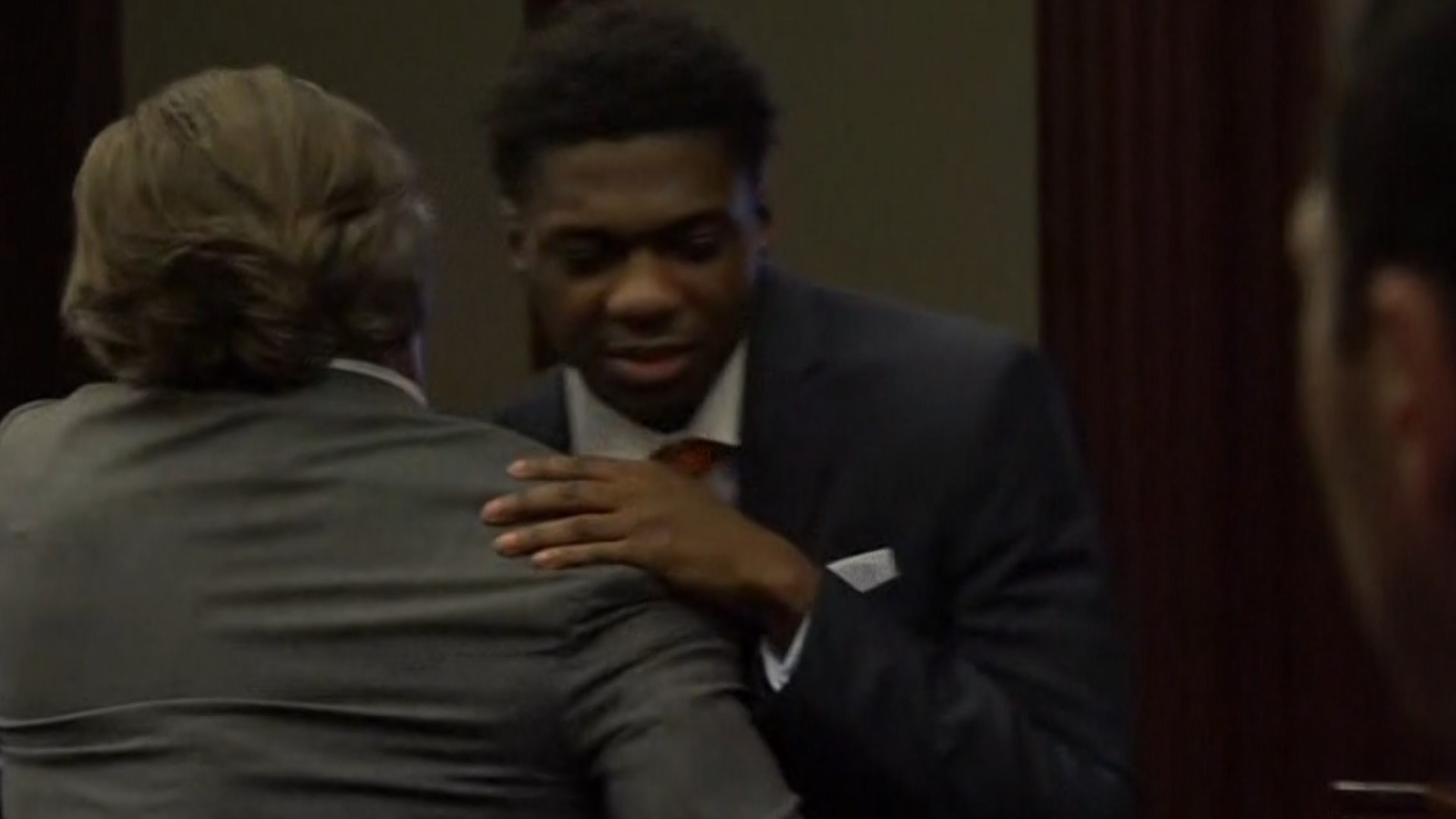JACKSONVILLE, Fla. — Noah Williams, the Jacksonville rapper known as Spinabenz, has been found not guilty Thursday on charges of possession of a firearm by a convicted felon after a four-day trial.
The rapper, who performs on the viral song 'Who I Smoke,' stood to face up to 30 years. He faced up to 15 years on that charge. If he was found guilty, the trial would have entered a separate sentencing phase to decide if the charges will be enhanced due to Williams' alleged gang ties -- which could have doubled his sentence to 30 years.
Williams will be allowed to go home tonight, after he returns to jail and bonds out, his attorney David Bigney confirmed. He has been in jail since late August after he allegedly removed his ankle monitor while on house arrest.
He still faces the charges for that offense, with pre-trial hearings beginning this month.
The prosecution in his case used his song lyrics as part of their case, referencing a song called 'My Glock,' where Williams says "My Glock cost $300," and references having a woman buy him if a gun if she is "over 18."
The prosecution's argument hinged on the narrative that Williams had his girlfriend purchase him the firearm he was accused of possessing.
Throughout the week, attorneys representing the state of Florida argued that during a routine traffic stop where Williams' girlfriend was driving, he was carrying the gun, and when police pulled them over, he took it out of his waistband and put it in the glove box. The Glock was confiscated at that traffic stop and Williams was arrested after his DNA was found on it.
Closing arguments
Most of the prosecution's closing argument focused on reviewing the evidence in the case, particularly the DNA found on the firearm in question.
The fact that 18% of the DNA on the firearm belonged to Williams was brought up throughout the trial, with the defense arguing that this did not prove Williams had used the gun or that it belonged to him and the prosecution arguing that it takes a considerable amount of DNA to create that percentage.
In closing, the prosecution revisited this evidence, as well as the song they had introduced earlier.
"He had already produced the song, with lyrics talking about this Glock, how it cost him $300," Assistant State Attorney Lauren Anderson said in her remarks. "How in one of the more important parts of the song, he gets females who are over the age of 18 and can purchase firearms legally to purchase them, and of course that is exactly what he did in this case."
They also noted that the song had come out just a few weeks after the Glock Williams was accused of possessing was purchased.
While the defense had argued that officers should have swabbed the glove box to determine if Williams had touched it, the prosecution said in closing that this would not happen during a routine traffic stop.
“We watch CSI shows on TV and we begin to develop this false understanding of what the reality of technology is," Anderson said.
In their closing arguments, the defense revisited the argument that no one could prove Williams had written the song after the purchase of this firearm, or that he wrote it at all.
Referencing the police officer who testified he believed the song was about true events, he said: "(Bob) Marley wrote about plenty of things that actually happened, but he also wrote a song, 'I Shot The Sheriff'," and this guy is telling you that Bob Marley now shot the sheriff."
Williams' attorney, David Bigney, who gave the closing for the defense, argued that the DNA evidence on the gun could have come from Williams touching his girlfriend. He also argued that experts had not been able to disprove that the DNA could have been transferred onto the gun.
Bigney's closing arguments focused on what he said was lack of evidence. He said the prosecution had not proven that if Williams did possess a firearm, he did it in Duval County.
They only had proof he had been in Duval County during that traffic stop, he said.
Finally, he said, no one had seen Williams with the firearm.
"Here's the big one," he said. "There were no eyewitnesses. Nobody places the firearm in Noah Williams' hands. Nobody."
Ultimately, the jury sided with the defense.

